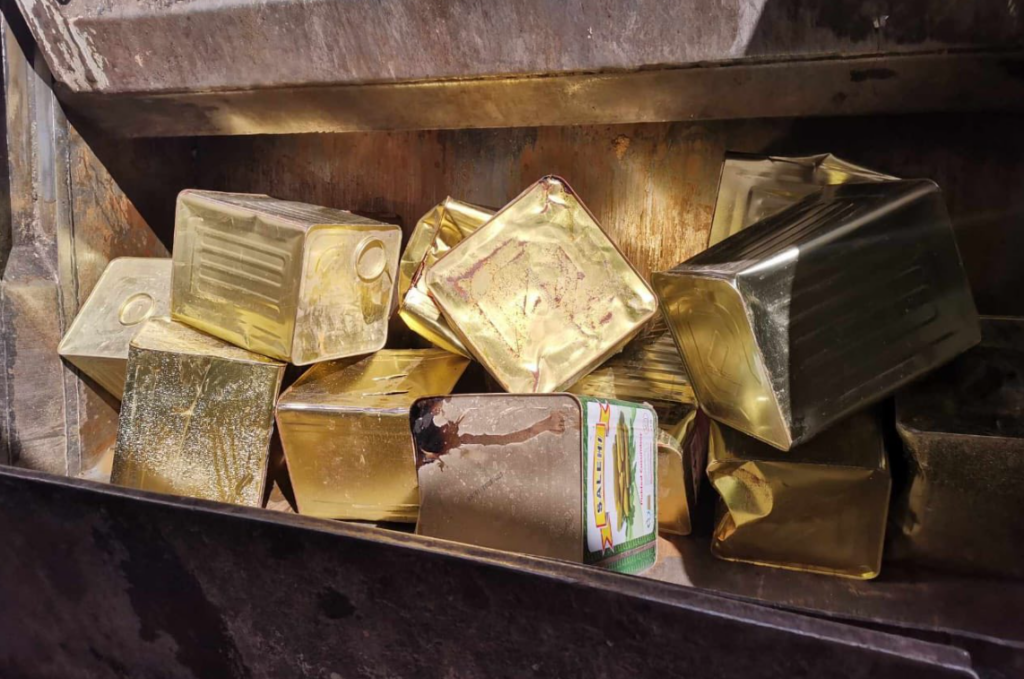Iranian press review: IRGC media lauds Houthi attacks on Israel

Revolutionary Guard praises Houthis' missile strikes
With the fall of the Assad government in Syria and the establishment of a ceasefire between Israel and Hezbollah in Lebanon, Iranian media close to the Islamic Revolutionary Guard Corps (IRGC) have recently concentrated on highlighting the conflict between Yemen’s Houthis and Israel.
Since the Gaza war began, the Houthis, Iran's Yemeni allies officially known as Ansar Allah, have targeted various sites in Israel with missiles and attacked military and commercial ships in the Red Sea in support of the Palestinians.
After Israel’s attack on Sanaa airport on 26 December and Yemen’s response, Major-General Hossein Salami, commander of the IRGC, praised the Houthis, saying: “The Yemenis will continue to resist with honour and dignity, as they have done until now, by the grace of God, and will ultimately be victorious.”
Javan, a newspaper funded by the IRGC, described the conflict between the Houthis and Israel as a war of attrition, suggesting the Yemeni movement could sustain its missile attacks for a long time.
Hamshahri, another IRGC-backed newspaper, also applauded the Houthis’ continued missile strikes on Israel and published a list of Iranian missiles and weapons the Houthis could use to target Israeli airports and military sites.
Women, Life, Freedom protester sentenced to death again
The Islamic Revolutionary Court has sentenced Mojahed Abbas Korkouri, a protester from the "Women, Life, Freedom" movement, to death for the second time.
Last month, the Supreme Court overturned Korkouri’s initial death sentence and returned his case to the Revolutionary Court for retrial. Despite this, the judiciary quickly reaffirmed the original verdict and reissued the death sentence.
Sharing the news on X, the political prisoner’s sister highlighted the increasing pressure on her brother and his deteriorating mental state.
“A grave injustice overshadows my brother’s life. He is innocent, but the Islamic Republic has prepared the noose for him. We need you, the people of Iran. Be our voice; be my brother's voice,” she wrote.
The Iranian judiciary has accused Korkouri of being responsible for the killing of Kian Pierre Affleck during nationwide protests against the government in 2022.
Pierre Affleck, a nine-year-old child, was shot dead in Izeh County. His family has repeatedly stated that they do not hold Kourkouri responsible, asserting that security forces killed their son.
Criticism grows over royalists' grave desecration
The release of a controversial video showing a supporter of Iran’s ousted monarchy urinating on the grave of Gholam-Hossein Saedi, a renowned Iranian writer buried in Paris, has drawn widespread condemnation.
Critics, including those opposed to the Iranian government, have accused monarchists and supporters of Reza Pahlavi, the son of Iran’s last shah, of promoting fascism through such actions.
Read More »Saedi, who is buried in Pere Lachaise Cemetery, was a prominent opponent of authoritarian regimes both before and after the 1979 Iranian Revolution.
His progressive political stance has made him a target for some pro-monarchy groups who view him as ideologically opposed to their cause.
Shima Bahremand, the culture editor of Shargh newspaper, denounced the incident, calling it a “new form of fascism” that “does not hesitate to disrespect the dead in its pursuit of power”.
Hossein Noushazar, a veteran Iranian writer and journalist, also criticised the act, describing it as a deliberate attempt to attack Saedi’s enduring legacy.
“A monarchist urinating on Saedi’s grave is not just a personal insult but a calculated political act aimed at silencing critics,” Noushazar wrote. “The choice of Saedi as a target was intentional, given his progressive ideas and significant role in Iranian intellectual life.”
Saedi was a staunch critic of Shah Mohammad Reza Pahlavi’s rule and was imprisoned for his literary activities before the 1979 revolution. His subsequent opposition to the Islamic Republic forced him into exile in France, where he died in 1985 at the age of 49.
Doubt surrounds Japan's mediation
Experts have remained sceptical about the success of potential Japanese mediation between Iran and the incoming US administration under Donald Trump.
A Japanese media outlet reported on Japan’s potential role in renewing negotiations between Tehran and Washington to lift international sanctions on Iran. Iranian news sources later widely covered the report.
Read More »Many experts believe this mediation effort might face a fate similar to Japan’s previous attempts during Trump’s first administration.
In 2019, then-Japanese Prime Minister Shinzo Abe visited Iran with a message from Trump to ease tensions between Tehran and Washington.
This visit occurred after the US unilaterally withdrew from the nuclear deal between Iran and world powers. However, Iran’s Ayatollah Ali Khamenei rejected Trump’s message, and the mediation failed.
Iranian MP Abolfazl Zohravand, comparing Japan’s past efforts to the current proposal, expressed doubt about Tokyo’s chances of success.
“Japan, as a country with significant economic capacity, can act as a messenger, but it has not and likely will not have political independence from the United States,” Zohravand said.
International affairs analyst Malik Mosaddeq shared a similar view, saying: “Even though many believe Trump’s second administration will be different from his first, we cannot yet expect a concrete outcome or success for Japan in this matter.”




